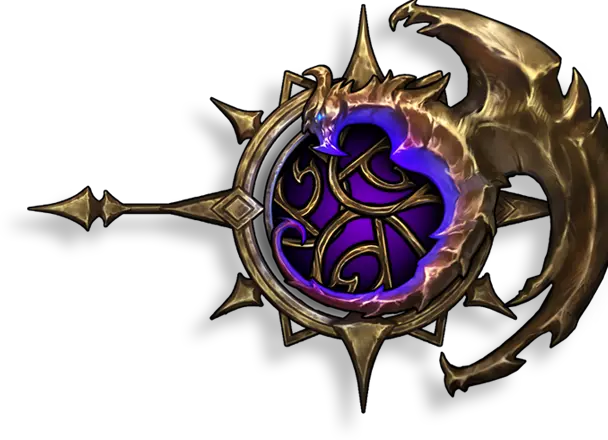Challenges Blockchain Faces In Gaming And How To Overcome Them
Blockchain technology holds immense potential to revolutionize the gaming industry, offering benefits like true ownership, decentralized economies, and enhanced security. However, several challenges hinder its widespread adoption. This article explores these challenges and discusses potential solutions to overcome them.
Scalability
One of the biggest hurdles for blockchain gaming is scalability. Popular blockchains like Ethereum can struggle to handle a large number of transactions simultaneously, leading to network congestion, slow transaction speeds, and high fees. This can be a major deterrent for gamers accustomed to seamless and responsive experiences.
Solutions
- Layer-2 Scaling Solutions: Implement layer-2 solutions, such as sidechains or rollups, to process transactions off the main blockchain, improving throughput and reducing fees.
- Alternative Blockchains: Explore alternative blockchains specifically designed for gaming, with higher transaction speeds and lower fees.
- Sharding: Implement sharding, a technique that divides the blockchain into smaller, more manageable shards, increasing overall capacity.
User Experience
The user experience in blockchain gaming can be complex and intimidating for mainstream gamers. Managing wallets, private keys, and interacting with decentralized applications can present a steep learning curve.
Solutions
- User-Friendly Wallets: Develop user-friendly wallets with intuitive interfaces and simplified onboarding processes.
- Seamless Integration: Integrate blockchain elements seamlessly into the game, abstracting away the technical complexities from the player.
- Education and Support: Provide comprehensive educational resources and support channels to help players understand and navigate the blockchain aspects of the game.
Security
While blockchain technology is inherently secure, vulnerabilities still exist. Smart contract exploits, wallet hacks, and phishing attacks can compromise player assets and erode trust in the ecosystem.
Solutions
- Smart Contract Audits: Conduct thorough audits of smart contracts to identify and address potential vulnerabilities.
- Security Best Practices: Educate players on security best practices, such as using strong passwords, enabling two-factor authentication, and being wary of phishing scams.
- Insurance and Recovery Mechanisms: Implement insurance and recovery mechanisms to protect players from potential losses due to security breaches.
Regulatory Uncertainty
The regulatory landscape for blockchain technology and cryptocurrencies is still evolving, creating uncertainty for developers and players alike. Varying regulations across jurisdictions can hinder the growth and adoption of blockchain gaming.
Solutions
- Collaboration with Regulators: Engage in proactive dialogue and collaboration with regulators to establish clear guidelines and frameworks for blockchain gaming.
- Compliance and Transparency: Adhere to relevant regulations and maintain transparency in operations to build trust with regulators and players.
- Self-Regulatory Organizations: Support the development of self-regulatory organizations within the blockchain gaming industry to promote responsible practices and standards.
Interoperability
Many blockchain games operate on different blockchain networks, creating challenges for interoperability and the seamless transfer of assets between games.
Solutions
- Cross-Chain Solutions: Develop and implement cross-chain solutions, such as bridges or interoperability protocols, to enable communication and asset transfer between different blockchains.
- Standardization: Promote standardization of token formats and protocols to facilitate interoperability across various blockchain gaming platforms.
Environmental Impact
The energy consumption associated with some blockchain networks, particularly those using Proof-of-Work consensus, raises concerns about the environmental impact of blockchain gaming.
Solutions
- Proof-of-Stake (PoS): Transition to PoS networks, which require significantly less energy than Proof-of-Work blockchains.
- Layer-2 Solutions: Utilize layer-2 scaling solutions to reduce the computational load on the main blockchain, minimizing energy consumption.
- Renewable Energy: Explore the use of renewable energy sources to power blockchain operations, reducing reliance on fossil fuels.
Legends of Elysium: Addressing The Challenges
Legends of Elysium (LOE) acknowledges these challenges and is actively working to overcome them:
- Scalability: LOE is continuously optimizing its blockchain network and exploring layer-2 solutions to ensure smooth gameplay and low transaction fees.
- User Experience: LOE prioritizes user-friendliness, providing intuitive interfaces and comprehensive support resources for players.
- Security: LOE conducts rigorous security audits and implements best practices to safeguard player assets.
- Environmental Impact: LOE is committed to exploring sustainable solutions and minimizing its environmental footprint.
The Future of Blockchain Gaming
Despite these challenges, the future of blockchain gaming remains bright. As technology evolves and solutions are developed, we can expect to see wider adoption and a more mature ecosystem. By addressing these challenges head-on, the blockchain gaming industry can unlock its full potential and create a more engaging, secure, and sustainable gaming experience for all.







